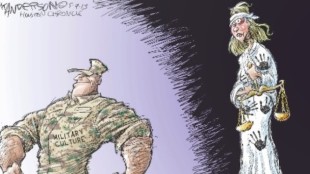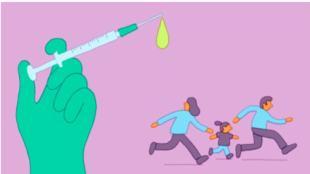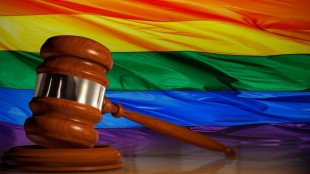Climate Crisis: Removing Authority from U.S. Military Commanders Over Sexual Assault Cases May Remedy the Prevalence and Underreporting of Sexual Assault
(Source) The latest Department of Defense (DoD) Annual Report on Sexual Assault in the Military reports an increase in instances of sexual assault in the U.S. military (military). While rates of sexual assault increase, rates of conviction and punishment remain unchanged. The current military justice system allows for the accused’s unit supervisor (hereinafter “Commander”) to play a significant role in how sexual assault cases are resolved. While Pentagon officials promise to take more aggressive action in addressing sexual assault, it is often questioned whether the military is “equipped to police and reform itself.” According to a study commissioned by the DoD, an estimated 20,500 service members “experienced some kind of contact or penetrative sexual assault in 2018.” This is a 38% increase since the 2016 survey. The same study found that while rates of sexual assault against men remained steady, rates of sexual assault against women increased by almost 50%. With less than one-third of military survivors reporting sexual assault, and 6,053 reports of sexual assault in the 2018 fiscal year, there appears to be a greater institutional problem within the military justice system. Military sexual assault reports are processed either through the restricted or unrestricted reporting systems. Restricted [read more]










